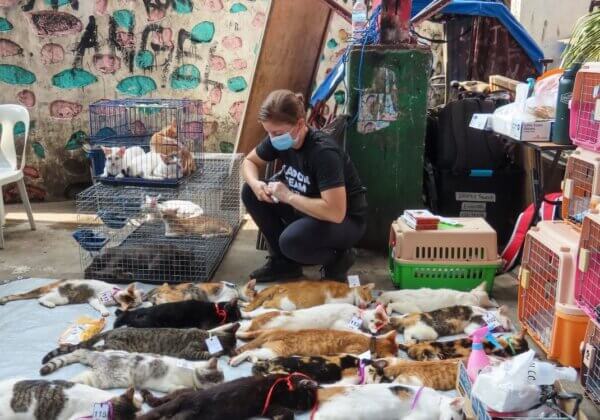Go Ahead – Talk to Your Dog!
 David Paxton became a practicing veterinarian more than 40 years ago, and his reputation as an animal expert—particularly when it comes to dogs—continues to grow. He has been interviewed many times on ABC radio, has been featured in the film The Secret Life of the Dog, and has spoken about humane treatment of animals around the globe.
David Paxton became a practicing veterinarian more than 40 years ago, and his reputation as an animal expert—particularly when it comes to dogs—continues to grow. He has been interviewed many times on ABC radio, has been featured in the film The Secret Life of the Dog, and has spoken about humane treatment of animals around the globe.
Paxton is the author of a new book called Why It’s OK to Talk to Your Dog. In the book, Paxton examines the relationship between humans and dogs from the time of the cave dwellers to modern-day society. And yes, he encourages readers to talk to their dogs!
The book is as much about humankind as it is about “man’s best friend.” Paxton concludes that if it were not for the involvement of our canine counterparts, our evolution would not have progressed at such a fast rate. Taking a cue from Charles Darwin about the survival of the fittest, David reminds us humans of our inadequacies—in particular, our weak sense of smell.
When we as a species (Homo sapiens) were still living in caves, we had competition for survival in the form of Homo neanderthalensis. Not only did the Neanderthals have a much better sense of smell, they also had other advantages, such as speed and strength. Here is where the role of the canine becomes pivotal in our evolutionary tale.
The ancestors of the beloved pooches with whom many of us share our homes helped humans to survive these early times because of their highly developed senses of smell and hearing. Canines acted as guard dogs to the caves where humans dwelled, warning them whenever danger approached—just as dogs do today in our homes. Dogs’ sense of smell is so acute that they are said to be able to detect cancer on a person’s breath.
While the book focuses on the relationship between humans and canines, it also delves into the social and cultural issues surrounding that friendship. Most people don’t really know what it means when dogs droop their ears and wag their tails. Paxton believes that these are signs that dogs are genuinely communicating with us—an opinion I share.
After all that dogs have done for us, we ought to follow Paxton’s lead and communicate with our furry friends more often! For information on the book and to read the first chapter for free, check out Paxton’s website at CompositeConversationalist.com.
Posted by Rochelle Regodon









